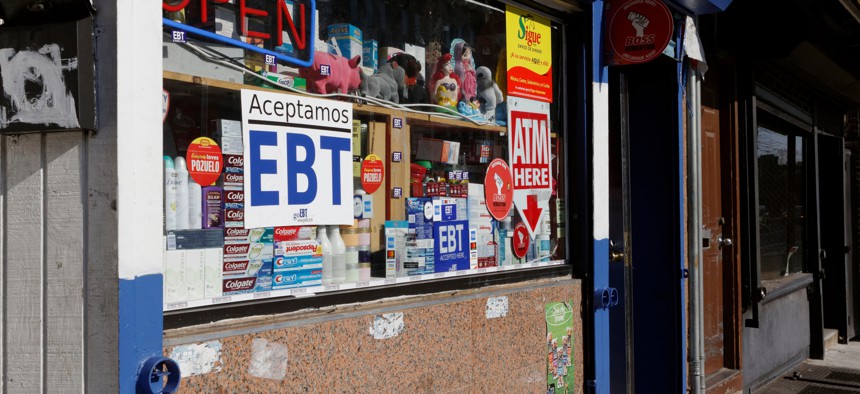Judge blocks USDA effort to deny SNAP access for 700,000 Americans

Picture of storefront that accepts SNAP. Jana Shea / Shutterstock
A federal judge blocked a Trump administration rule that would have denied food stamps benefits for an estimated 700,000 Americans, the Washington Post reports, describing the change as “arbitrary and capricious.”
The rule would have restricted the ability of states to expand access to the Supplemental Nutrition Assistance Program, or SNAP, for able-bodied adults without children. Such adults typically can only get up to three months of benefits in three years unless they work, volunteer or participate in job training for a certain amount of time each month. But states can use waivers to bypass this work requirement if the unemployment rate in a certain area is 20% higher than the national rate. But the U.S. Department of Agriculture’s rule would limit the use of these waivers.
Chief U.S. District Judge Beryl A. Howell of D.C. wrote in a 67-page opinion that the federal agency had been “icily silent” about how many adults would have been denied benefits had the rules been in place during the pandemic.
More than 50,000 residents could have been kicked out of the program in New York City, according to earlier projections from city officials. More than 100,000 New Yorkers statewide would have been threatened by the rule, according to a 2019 analysis of the then-proposed rule by Hunger Solutions New York.
“If implemented, this rule would have not only made it harder for thousands to feed their families and risk them going hungry, but would have exacerbated the public health crisis we face and the economic recession,” said State Attorney General Letitia James in a statement. She filed a lawsuit against the rule alongside District of Columbia Attorney General Karl Racine in January.
Enrollment in the Supplemental Nutrition Assistance Program has increased in New York since the pandemic began. The number of recipients jumped about 9% between March and June, according to the state Office of Temporary and Disability Assistance.